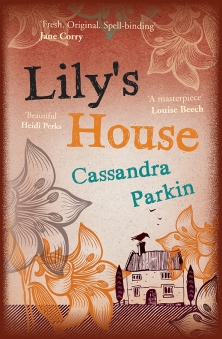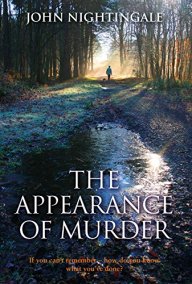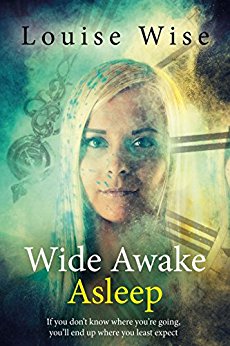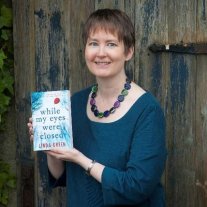
Once again the wonderful Book Connectors on Facebook has brought me into contact with an author – this time Paul Mathews whose latest comedy thriller We Have Lost the Pelicans is published today, 28th December 2016. We Have Lost the Pelicans is available for purchase in e-book here.
As 2016 seems to have been a pretty dreadful year for so many, including me, it’s wonderful to be ending the year on Linda’s Book Bag with an interview with Paul to tell me all about this latest comedy thriller.
We Have Lost the Pelicans
London, 2044. The St James’ Park pelicans have gone missing – the day before the Republic’s new pelican flag is unveiled. At the same time, British intelligence uncovers coded e-comms about possible anti-Government activity. Who are the bird-nappers and what do they want? And who is behind the secret messages?
Agent Howie Pond – licence to lunch – reluctantly agrees to try and find out. Howie’s fiancée Britt has a secret mission of her own – to identify the mysterious owner of Windsor Castle.
And to add to the chaos, Howie and Britt are supposed to be getting married tomorrow…
There’s a super trailer for We Have Lost the Pelicans here.
An Interview with Paul Mathews
Hi Paul. Thank you so much for agreeing to answer some questions on my blog about your writing and your novel We Have Lost the Pelicans that is published today. Firstly, please could you tell me a little about yourself?
Thanks, Linda. It’s great to be here. Okay. I’m a 44-year-old British guy, who’s given up the 9-to-5 to become a full-time indie author. I self-publish my comedy-thriller e-books on Amazon, with the help of an editor and graphic designer. In my previous life, I was a UK Government press officer for 16 years. So, I know a bit about PR and marketing, which comes in handy. Before that, in the dim and distant pre-internet days, I was an accountant. But we don’t talk about that. And delving even deeper into the past, I somehow ended up studying philosophy at Cambridge University. What else? Oh, yes. I love cheese. And Marmite. Sometimes together. That’s the kind of crazy world we authors live in.
And tell us a little about We Have Lost the Pelicans too.
It’s the second book in my We Have Lost comedy-thriller series, which is set in a British Republic in the year 2044. There are two main characters: Howie Pond, the president’s spokesperson and rookie secret agent; and his journalist girlfriend Britt. In the first book, We Have Lost The President, the nation’s leader goes missing. In the second book, the St James’ Park pelicans disappear overnight – the day before a big presidential announcement in the park – and Howie is asked to investigate. Meanwhile, Britt is trying to find out who owns Windsor Castle. Oh, and it’s very funny. Mustn’t forget to mention that.

(Find out more about We Have Lost the President here.)
When did you first realise you were going to be a writer?
When I was 11 years-old, I was writing adventure books and producing my own comics, so I always had that creative urge. I won a local playwriting competition aged 18 and I would’ve loved to pursue it more actively after that. But that was back in 1990, when the internet didn’t exist and it was harder to find opportunities. I only got back into it in 2006 when an old school friend asked me to write her school’s pantomime. I wrote more plays and found an online publisher (Lazy Bee Scripts) who accepted my work. And then I progressed to novels. It’s taken more than three decades to become a full-time writer. But definitely worth the wait.
If you hadn’t become an author, what would you have done instead as a creative outlet?
I was an amateur actor for several years and was attracted to professional acting as a possible career change. But it’s expensive to train, I didn’t fancy the idea of having to pretend I’m a tree with a bunch of 20-somethings, and work is sparse. If I’d been brave enough, I think I could have become a stand-up comedian. I might give it a go at one of those ‘open mic’ nights soon. Or maybe not!
You gave up ‘real’ work to become an author full time. How did you make that decision and what impact has it had on your life?
By the time I’d hit the magical age of 42, I’d had enough of working long hours in London. And while some press office work is creative, the vast majority isn’t. I decided that being stuck in an office, using about 10% of my creative talents, was not where I wanted to be. It wasn’t that difficult a decision to make because I’d been thinking about a career change for a while.
The main impact is that, in these early days, I am investing a lot of time and money, with the rewards coming later. In other words, I no longer have an income! But luckily I saved for years, my wife has a good job and the cost of living in Poland – where I do lots of my writing – is much cheaper than the UK. Another consequence is that my cat sees a lot more of me at home now, which I think she’s happy about. I’m never quite sure.
Your books are comedy thrillers. How difficult is it to balance those elements?
I’ve always written comedy, so that’s the easy part. Plotting a good thriller is the hard work. I try to make each chapter an adventure in itself, which keeps the reader engaged. Chapters switching between the two main characters is one way I build tension. The important thing is that the humour should flow from the characters and their actions, and not be forced upon the reader e.g. with lots of unnecessary one-liners.
Are you naturally funny in real life?
Yes, I’m hilarious. But I would say that!
(Well I suppose you would!)
Your Mum likes your author photo. What does she think of your books?
I think she enjoys them. She’s an author herself – but a totally different genre (paranormal fiction). She writes as Carolyn Mathews (sorry, had to get a plug in there for my Mum!).
You’ve written quite a few plays. Why did you decide to write in another genre?
Playwriting simply doesn’t offer the same creative rewards in terms of audience. Amateur drama groups tend to go with established playwrights and it can take years for an amateur play to receive its first performance. For example, my full-length comedy Happiness was premiered in June by the St Mary’s Players in Welling – five years after it was published. E-books are a much more immediate way for my work to be enjoyed by people who love a good story and a good laugh. People who read your blog, for example..!
Which aspects of your writing do you find easiest and most difficult?
It’s not really the writing – it’s what comes before and after it. I don’t enjoy the preparation work; it drags on over many weeks, as ideas come to me. Also, the endless re-reading of full-length drafts (my first novel was 100,000 words) can turn your brain to mush after a while. I never have an actual problem with writing – unless I have a hangover or I’m ill, when I’m not quite so productive.
What are your writing routines and where do you do most of your writing?
We have a second bedroom that has been turned into my office – I do all my writing there on a laptop. I usually set myself a 2,000-word daily target (equivalent roughly to one of my chapters). When I’m in full writing mode, I write Sunday to Thursday and do social media on Friday. I treat it much more like a job than I used to. Routine is important. And so are periods when you just chill out and let the editor do all the hard work.
I know that you’re often distracted by social media. How far do you think it’s a benefit or a curse for authors?
It’s useful for keeping friends, family and hardcore fans updated about your work. And I found my editor and graphic designer through it. But it sells a fraction of the books that well-targeted advertising can shift. Spend too much time on Facebook or Twitter, and your productivity suffers. When I’m writing, I have short social media breaks which work well.
When you’re not writing, what do you like to read?
I read comedy fiction and, in the past, I read a lot of science fiction. The Hitchhikers Guide to the Galaxy series is a big influence on me and several Amazon reviewers have noticed similarities between myself and Douglas Adams, which are the kind of comments that make it all worthwhile. I find it helpful to see how other comedy writers structure their work, so reading their novels is both work and pleasure. I’m reading The Perpetual Astonishment of Jonathon Fairfax by Christopher Shevlin at the moment which, coincidentally, involves a scene with a pelican in St James’ Park!
You studied Philosophy at university. How has that helped or hindered your writing?
Philosophy wasn’t a proactive choice of subject – it was the only option after I changed my mind about studying mathematics. So, I guess, in a way, going in the wrong direction as a young man made me more determined to go in the right direction in later life. And my main characters do have their philosophical moments, so it comes in useful.
If you could choose to be a character from one of your books, who would you be and why?
Brian the auto-tech is a funny robot who features in the series. I would enjoy not being human for a while, so I’ll go with him.
If We Have Lost the Pelicans became a film, who would you like to play the main characters of Howie and Britt?
I’m not sure about Howie – he is a grumpy 40-something. Me, maybe, as I’ve done a bit of acting?! Britt is quite a steely, no-nonsense character, so I could easily see Gwyneth Paltrow in that role.
If you had 15 words to persuade a reader that We Have Lost the Pelicans should be their next read, what would you say?
If the book is made into a film, you can be one of the extras!
Thank you so much, Paul, for your time in answering my questions.
About Paul Mathews

Paul Mathews is a 44-year-old British guy who’s given up his 9-to-5 job in London to become a full-time novelist. Why did he make this bold step? Well, he’d had enough of crazy managers and printers that didn’t work properly. So one afternoon, he shut down his computer, deleted all his emails and escaped the office – never to return.
Now he does what he loves . . . sits at a laptop, spends hours on social media and occasionally does a bit of writing. Before becoming a poverty-stricken writer, he was a Government press officer and PR guy. He’s even been an accountant. But he doesn’t like to talk about that. And going back further, he went to Cambridge University and studied philosophy. The internet didn’t exist then. And the internet doesn’t exist in his debut novel. So that makes him feel less old than he really is.
You can follow Paul on Twitter and find out more about him on his website.





















































